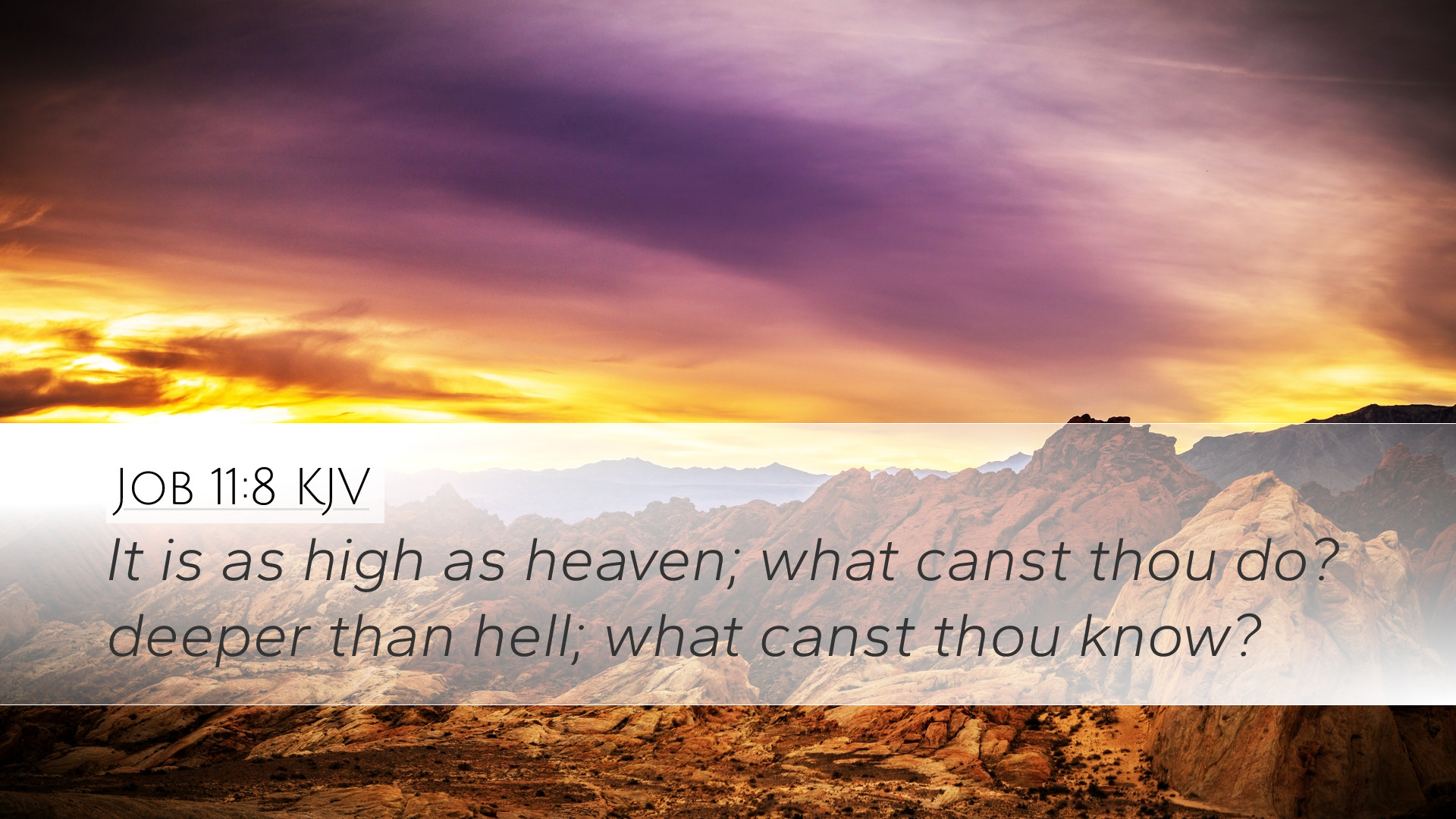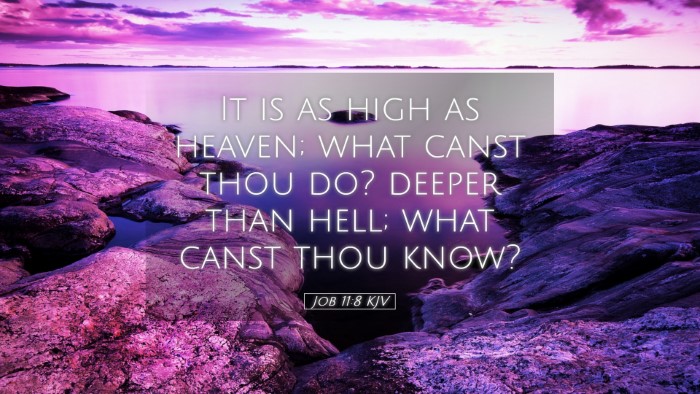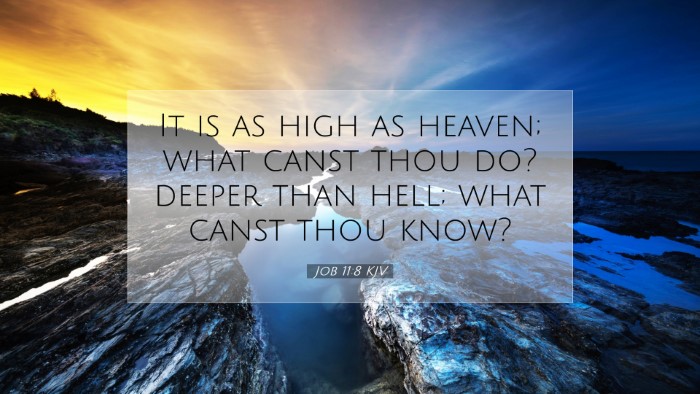Old Testament
Genesis Exodus Leviticus Numbers Deuteronomy Joshua Judges Ruth 1 Samuel 2 Samuel 1 Kings 2 Kings 1 Chronicles 2 Chronicles Ezra Nehemiah Esther Job Psalms Proverbs Ecclesiastes Song of Solomon Isaiah Jeremiah Lamentations Ezekiel Daniel Hosea Joel Amos Obadiah Jonah Micah Nahum Habakkuk Zephaniah Haggai Zechariah MalachiJob 11:8
Job 11:8 KJV
It is as high as heaven; what canst thou do? deeper than hell; what canst thou know?
Job 11:8 Bible Commentary
Commentary on Job 11:8
Job 11:8 states, "It is as high as heaven; what canst thou do? Deeper than hell; what canst thou know?" This verse is spoken by Zophar, one of Job's friends, who seeks to respond to Job's lament about his suffering and the inscrutability of God’s purposes.
Context and Analysis
This verse captures Zophar's contention that God's ways and wisdom are beyond human comprehension. While Job has expressed his agony and confusion over his plight, Zophar emphasizes the transcendence and depth of God's understanding, implying that Job's attempts to understand his suffering are futile.
The Highness and Depth of God's Wisdom
The contrast between heaven and hell illustrates the vastness of God’s wisdom:
- Heaven: Represents the highest realm, symbolizing the limitless and sublime nature of God’s justice and purpose.
- Hell: Refers to the deepest abyss, indicating the unfathomable nature of God’s judgments and the seriousness of sin.
Zophar challenges Job by arguing that God’s wisdom transcends human understanding. According to Matthew Henry, this is a call for humility in the face of divine sovereignty.
Human Limitations and Divine Understanding
Both Albert Barnes and Adam Clarke emphasize the limitations of human understanding. While Zophar’s statement may seem harsh, he insists that Job’s struggle arises from an insufficient grasp of divine wisdom. Barnes notes:
"The wisdom of God is not to be measured by human standards, nor can we fully grasp His eternal counsels and purposes."
Clarke further elaborates that human knowledge is often clouded by fallibility:
"What we do not know far exceeds what we do; hence we must be cautious in our judgments of God’s workings in our lives."
Application for Believers
In the modern context, Job 11:8 serves as a reminder for believers to maintain faith amid trials. It encourages a posture of trust, relying on God’s superior wisdom. The commentary pointed out by Matthew Henry suggests that:
"In difficulties and perplexities, we must learn to wait upon God, recognizing that His plans are holistic and all-encompassing."
For ministers and theologians, this passage emphasizes the necessity of teaching congregants about the mystery of God’s will and the importance of relying on faith rather than understanding.
Concluding Thoughts
Job 11:8 evokes deep reflections on the nature of God and the limitations of human comprehension. While Zophar’s remarks might initially seem dismissive, they underline the vast divide between the divine and human experience. Understanding this duality can lead to a more profound sense of reliance on God’s wisdom and a more contemplative faith approach.
As we meditate on this verse, let us acknowledge God’s greatness and our need for humility, fostering a closer relationship with the Divine amidst life’s uncertainties.


